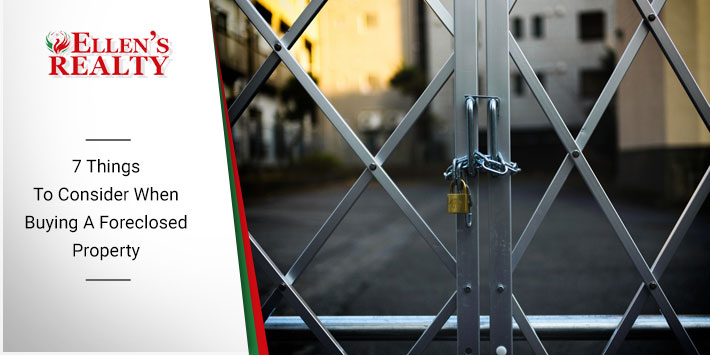Buying a foreclosed property can be a great way to bag an awesome deal. But foreclosed property that have been neglected or abandoned for months, or sometimes years, often comes with many other hidden costs that can turn that bargain into a burden. Here are 7 things to consider before putting your hard earned money on a foreclosure.
- Invest in a complete home inspection. A good home inspector will provide a thorough and detailed report on the structure, mechanical and other major aspects of the property. This will give you a better idea of what you’re buying and a better picture of which repairs to prioritize. This will also allow you to decide whether or not to pursue the deal at all.
- Know the property’s history. Exercise due diligence by doing your research. Get as much historical perspective of the property, its maintenance, repairs or any additions by its previous owner. A home inspection can also give you an idea of any changes that may have occurred during the life of the property.
- Check the plumbing. The most disastrous problems in abandoned or foreclosed property are usually plumbing related. Broken pipes, leaks or having to address a mold problem, or replace whole floors and walls can be very costly.
- Look into mechanical, water-heating and electrical systems. Dirt, debris and even small animals can accumulate in the duct work in abandoned property. Check that the heat exchangers of boilers and furnaces have not corroded due to humidity. Gas systems won’t work if the filters are dirty for fire safety reasons. Note that you’ll have to shoulder the expenses to clean and test whether these systems are operable.
- Check for signs of neglected maintenance. Signs like using duct tape or plumber’s putty over a leaking pipe, overgrown vegetation, debris on the roof and gutters or caulk/seal tile in the showers and tubs, could mean that the previous owners were not very diligent in maintaining their home. These could eventually lead to deeper problems and require costly fixes along the way.
- Pay attention to foundation cracks, leaks and other exterior damage. Bad roofs, structural issues and water damage are among the more expensive property aspects to repair.
- Perform a sewer scope. For property that’s over 20 years old, it’s a wise decision to invest in a sewer scope with a reputable plumbing company. Check whether the lines are damaged by tree roots, rotted or clogged. Some may not be properly connected to public systems.
Under the right circumstances, a foreclosed property can present a smart investment opportunity. Although it would be a worthwhile effort to do your homework before making that big decision. You don’t want to be in over your head with unexpected expenses in repairs, when you could be enjoying your property investment without the stress.

